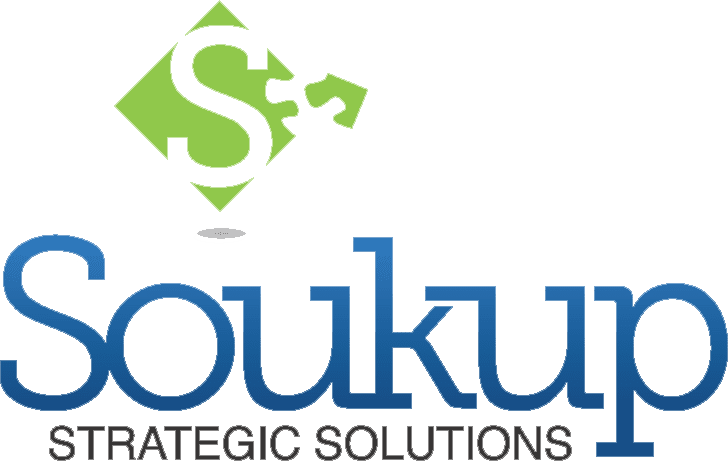Grants are integral to the funding strategies of many nonprofits. Finding grants that fit your specific circumstances is critical in successfully obtaining funding. Yet, we know that grants do not comprise most nonprofit funding. Therein lies the rub. Nonprofits need to balance where to expend their assets in searching for funding. It’s imperative for nonprofits to consider the benefits and costs of available grant research resources. What follows is a look at some of the grant research tools and services available, both free and subscription, and a summary of some of the benefits and costs connected to each route with tips for making whatever path you choose a fruitful one.
Are you ready to increase your nonprofit’s income from grants? Our dedicated Grants Team is here to collaborate with you, developing an individualized plan to enhance your organization’s success with grant funding. Request a discovery call and let’s get started.
Free Grant Research Tools
Below are some of the main free research tools available to help in your search for grant funding:
- Grants.gov – This is the federal government’s site for grant announcements that cover all federal agency funding opportunities. You can also register to receive their newsletter and alerts.
- Sam.gov – This also is a federal government site. It is where federal contracting opportunities are posted.
- Internet search – Using the search engine of your choice, you can input different search terms related to grants, for example, “housing grants,” “grants for mental health in Florida.”
- Grantmakers.io – This is a very useful, free site. The developer has taken information from the 990 tax filings of both funders and recipients and made it into a searchable database. You can search by topic, funder name, recipient name, amount, and location.
- Regional Grantmaking Organizations – This provides a listing of state associations of foundation funders.
- Ecivis – This grant research resource is available free to Collier County organizations through the County’s subscription. The County’s website outlines the steps needed to register. (https://www.colliercountyfl.gov/visitors/browse-by-topic/grants)
Benefits of Free Services
One of the primary benefits of free grant research tools is that they come at no cost. Nonprofits can utilize these tools with resources they already have, such as an internet connection, access to the local library, or participation in networking events. This accessibility makes it easier for organizations to start their grant research without incurring additional expenses.
Costs of Free Services
There is a world of hidden costs in using free grant tools. One of those costs is time, a commodity nonprofits cannot afford to waste. There is the time associated with searching for funders, sorting through the information to see if it applies to your organization, and then preparing a report of that information to be used to decide whether to apply. You must also decide who in your organization will be doing the searching. If it is someone in a paid position, that is either a direct cost or it is someone that is being diverted from their usual job to perform the task of grant research. If you rely upon volunteers for this task, you are dependent upon their skill and availability.
Tips for Using Free Services
If you decide to go the free route, here are some things to be sure to do before you begin your search:
- FOCUS! Look at your budget and figure out where grant funding would be most useful and practical.
- What type of support do you need? Grant funders support different types of organizational functions, e.g., capital costs, programmatic support (personnel, supplies, equipment), general operating support. Be sure that this is part of your research.
- Include your geographic area in your research using your city/town, county, state, region, and even country as funders may distinguish their giving in this way.
Subscription Grant Research Services
There are many, many grant subscription services. This list only touches the tip of the iceberg. Each subscription grant database typically has at least one thing they offer for free (the first one’s free, kid), hopefully enticing you to consider more.
- Candid (www.candid.org) – Candid was formed with the merger of the two nonprofit service giants, The Foundation Center and GuideStar. Candid’s 990 search engine provides free access to the 990 forms that funders file with the IRS. You can search using the name of the funder and/or their location. Candid’s subscription grant search services are available at the Essential, Premium, Professional, and Enterprise levels. The Essential service gives tailored funder profiles for $ $249 per year.
- GrantStation (grantstation.com) – The GrantStation newsletter (GrantStation Insider) is free and you can subscribe to it for free, as well. GrantStation offers a paid grant search service that includes instructions on how to prepare for a successful search. The search engine can customize the search to geographic area, target population, areas of interest, type of support, and type of grantmaker. It includes government as well as foundation funding. A one-year membership is $179.
- GrantWatch (grantwatch.com) – You can sign up for the free, weekly newsletter via email. It contains information on grants available in your state. The paid grant research services are available from $18 per week to $199 per year. They include funder profiles, available opportunities, links to workshops, and other material relevant to funding applications.
Benefits of Subscription Services
One of the key benefits of subscription services is that they handle extensive research for you. Sifting through vast amounts of information to identify suitable funders can be overwhelming. By subscribing to these services, nonprofits can save valuable time and resources, allowing their staff to focus on other critical tasks. The subscription cost is often offset by the efficiency and expertise these services provide.
Costs of Subscription Services
One obvious cost of subscription services is the expense itself, which your organization must budget for. Additionally, evaluating and selecting the right service can be time-consuming and challenging. It’s important to remember that while subscription services provide customized research, they don’t guarantee a perfect match between funders and your organization.
Tips for Using Subscription Services
- Do Your Due Diligence: Thoroughly evaluate the services offered by different providers.
- Compare Options: Look at the features, costs, and benefits of each service to find the best fit.
- Make an Informed Choice: Choose a service that aligns with the strategic importance of grant funding for your nonprofit.
Final Tips and Takeaways
Choosing the right grant research tools and services is crucial for nonprofits looking to secure funding. Whether opting for free resources or investing in subscription services, each path has its own set of benefits and challenges. Free tools can be a great start for organizations with limited budgets, but they often require a significant investment of time and effort. On the other hand, subscription services can streamline the search process, saving valuable time, but they come with a financial cost. By carefully evaluating your organization’s needs and resources, you can make an informed decision that maximizes your chances of finding suitable grants. Remember, the key to successful grant research lies in thorough preparation, focused searches, and diligent evaluation of potential funding opportunities.
Are you ready to increase your nonprofit’s income from grants? Our dedicated Grants Team is here to collaborate with you, developing an individualized plan to enhance your organization’s success with grant funding. Request a discovery call and let’s get started.






